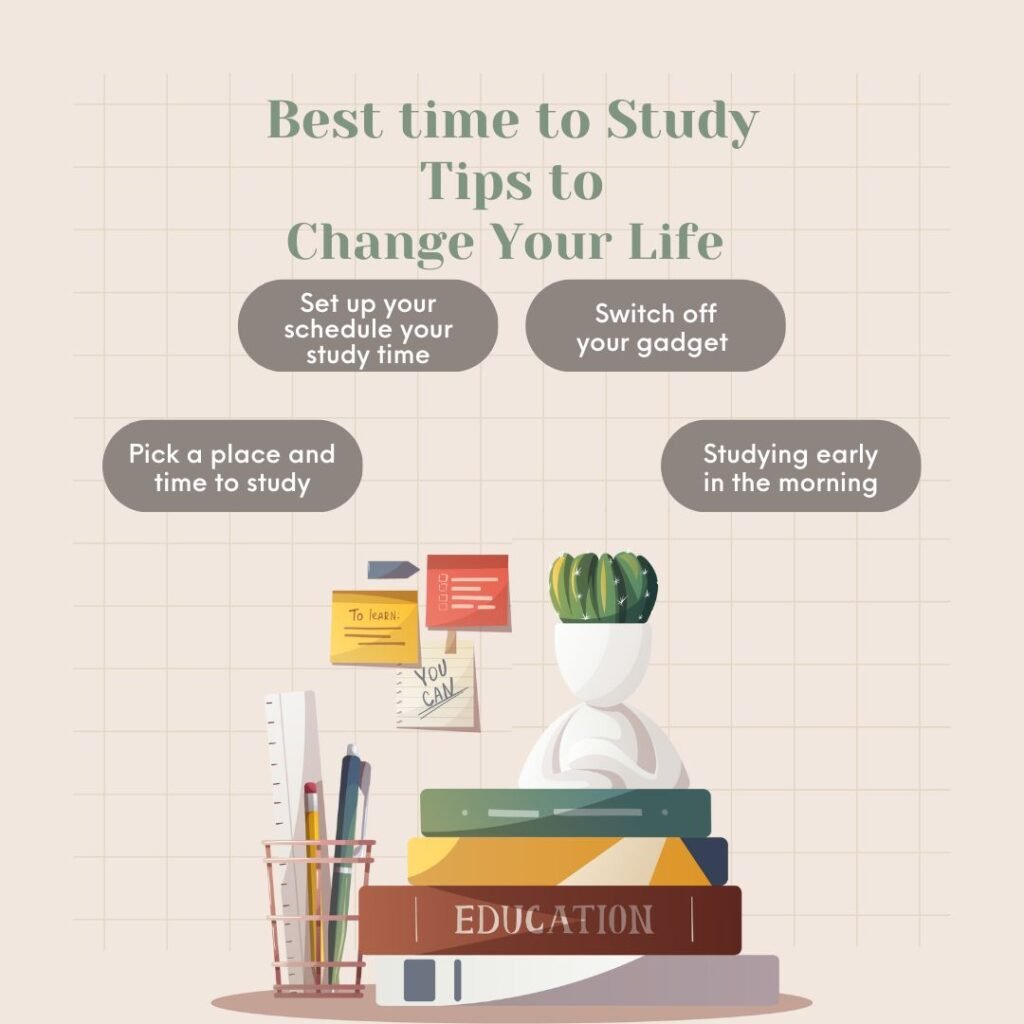Study Time - How To Optimize Study Time
All things considered, research has shown that learning is most effective between the hours of 10 am and 2 pm and 4 pm and 10 pm, when the brain is in an acquiring mode. However, between 4 and 7 in the morning is when learning is the least engaging.
If you are a student, your life revolves around your studies. To choose the optimal time for you to study, it takes time and effort. Some people find that studying in the mornings is better1, while others find that studying in the evenings or at night helps them concentrate better.
Peak performance is built into our DNA, claims chronobiology2, the science of “excellent timing.” Our biological clock, an internal clock ingrained in our brains since childhood, actually aids in determining when is the best time to study. Even though recent research suggests that timing may not be everything, it is still crucial if you want to consistently produce your best work.

Studying in The Morning-Study Time
Most people would assume that the greatest time to study is in the morning when our minds are at their sharpest following a restful night’s sleep and breakfast. Your eyes will benefit from the available natural light, which also helps you stay awake. Because mornings tend to improve your memory, this time is excellent for opening a textbook to study a new topic or simply going over your lecturer’s notes from the previous day.
Studying in The Afternoon-Study Time
Afternoon is when pupils’ brains are most adept at combining new knowledge with what they already know. Students can develop connections and give the knowledge they have learned additional significance at this time of day.
Additionally, since people are more active in the mornings and afternoons, these times are ideal for studying because if you get stuck in the middle of your work, you can always phone your classmates or teachers for rapid clarification or even visit the library for additional resources.

Studying at Night
For specific students, they have more energy later in the day. Consequently, the night or evening is a more powerful time for them to peruse and study. Learning right now likewise assists with working on your fixation and imagination as there are less interruptions, and with everybody in bed, there is most certainly harmony and calm. Resting right after thinking about is similarly said to set information and further foster survey. One thing to note be that as it may, do guarantee you are at this point getting a typical of 8 to 9 hours of rest everyday.
Strangely, some exploration has recommended that learning at your most drained time can assist your mind with holding higher groupings of new abilities, like communicating in an unknown dialect. This obviously even has a name to it: rest learning3. Since during slow-wave rest, the memory-union cycle takes care of its best responsibilities and your cerebrum could be getting the reclamation and reactivation that it needs during its season of rest. This implies that concentrating before sleep time can assist your mind with learning new things, even in your rest.
How to Find Your Best Time to Study?
All things considered, various timings work for various understudies and you can carve out your best opportunity of the day to study in the event that you consider the accompanying factors4.
Right off the bat, when are you generally ready? Ponder that, however various characteristics of recollections and sharpness appear to be better at various times for various individuals. For instance, you can have a superior visual memory toward the beginning of the day, however your decisive ability to reason tops in the early evening. Also, on the off chance that your ideal time is inclined to interruptions, for example, supper time, which could disturb your everyday practice, It is ideal to track down another timing. Ultimately, ensure you select a period that you can adhere to reliably, basically for a couple of days consistently on the grounds that consistency guarantees you concentrate on everyday furthermore, deals with the idea of your audit time.
Planning a Better Study Schedule
- The college experience has several facets. A few of the more frequent ones are set, including eating, classes, campus organisations, work, and church.
- Many of them, including SLEEPING, STUDYING, RECREATIONAL, and PERSONAL, can be adjusted (errands, family, washing).

